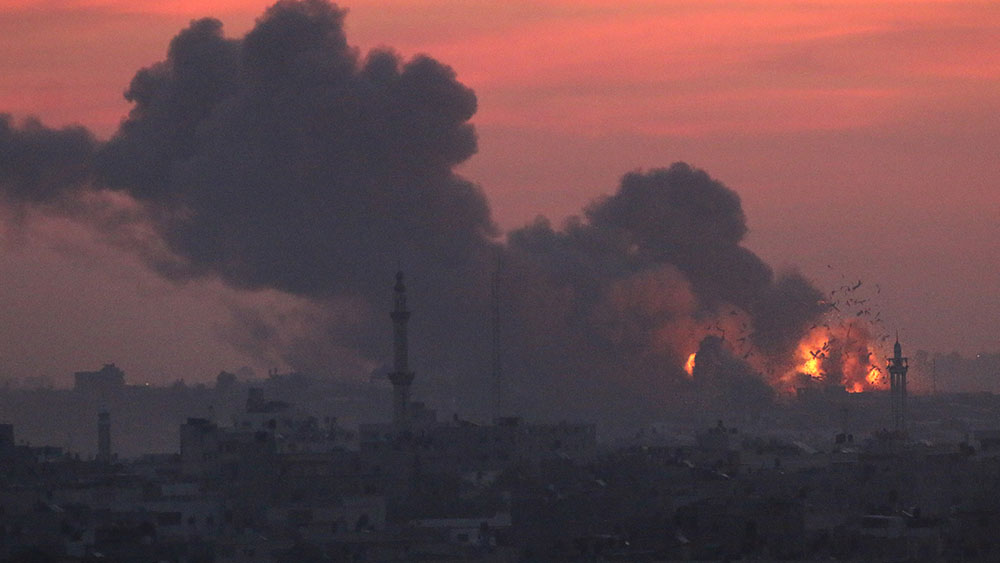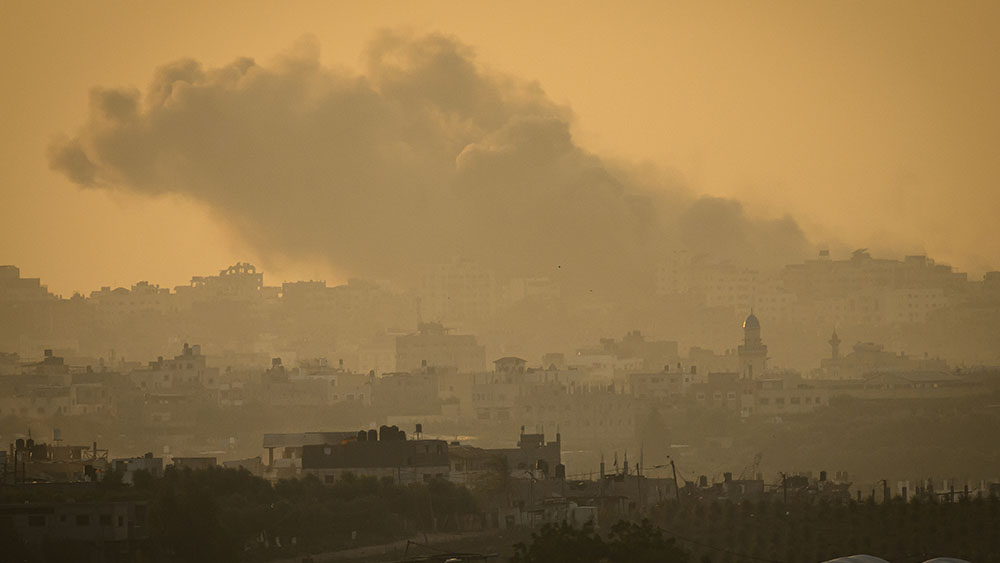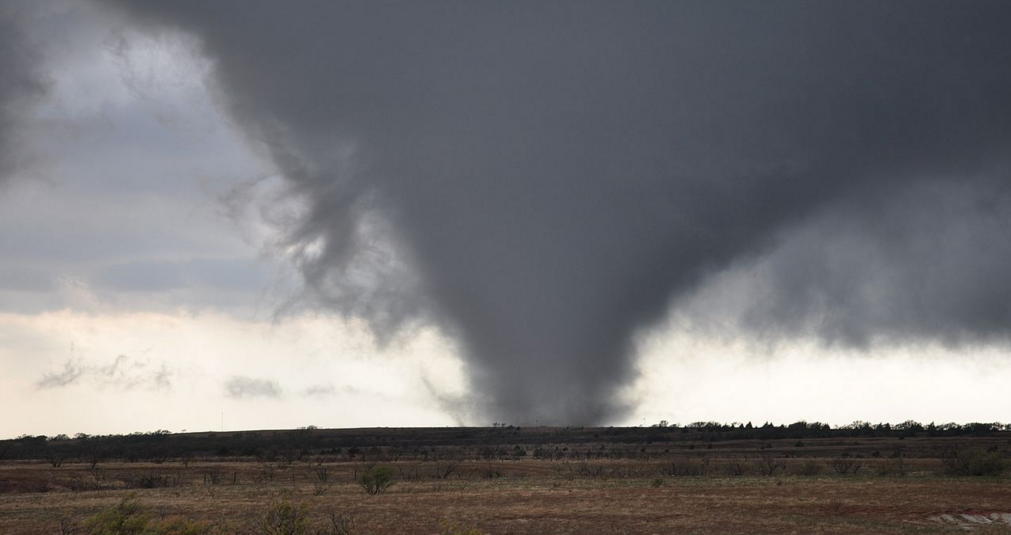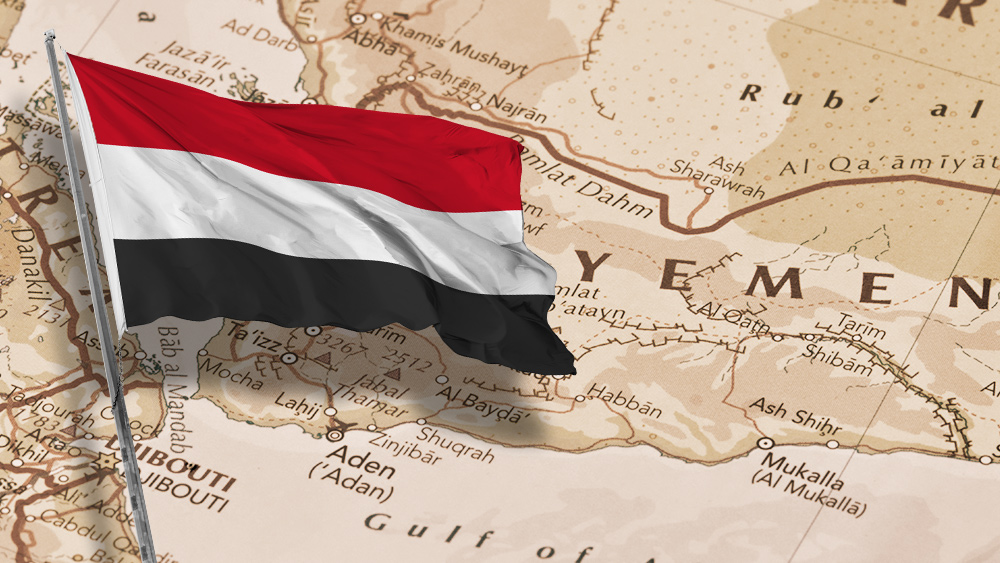Israel kills Hamas commander in Lebanon, escalating tensions amid fragile ceasefire
By isabelle // 2025-04-04
Tweet
Share
Copy

- Israel assassinated senior Hamas commander Hassan Farhat and his two children in Lebanon, escalating tensions under a fragile U.S.-brokered ceasefire.
- Lebanon and Hezbollah condemned the strike as a ceasefire violation, accusing Israel of expanding aggression.
- Israel is carving "security zones" in Gaza, displacing thousands and eroding Palestinian sovereignty under the guise of security.
- Over 50,000 Palestinians have been killed since October 2023, with Gaza's infrastructure collapsing amid relentless Israeli offensives.
- International inaction enables Israel’s violations, fueling regional instability while civilians bear the brunt of violence.
Ceasefire in name only
The November 2023 truce, designed to halt cross-border clashes between Israel and Hezbollah, is crumbling. Israel has repeatedly violated the agreement, striking Beirut’s southern suburbs twice in recent weeks and now hitting Sidon, far from the traditional conflict zone. Lebanese Prime Minister Nawaf Salam called for "maximum pressure" on Israel to stop "a blatant attack on Lebanese sovereignty," but Washington has consistently greenlit such operations, dismissing them as "self-defense." Hamas, meanwhile, framed Farhat’s killing as part of Israel’s "cowardly assassination policy," warning it would not deter resistance. Yet Israel shows no signs of restraint. Just hours before the Sidon strike, its military expanded its northern Gaza "security zone," bulldozing homes and forcing thousands to flee under bombardment.Gaza’s slow erasure
In Gaza, Israel is executing a land grab disguised as counterterrorism. Troops have pushed deeper into Shejaia, a Gaza City suburb, while declaring vast areas "no-go zones"—a tactic Palestinians say aims to depopulate the Strip permanently. "I swear to God, I am staying in the street. There is no shelter here," said Hemam Al-Rifi, a displaced Gazan whose family was killed in an airstrike on a school-turned-refugee camp. The Trump administration has remained conspicuously silent as Israel flouts international law. Meanwhile, Gaza’s health system has collapsed, clean water is scarce, and over 280,000 people have been displaced in the past two weeks alone.A pattern of excuses
Israel’s playbook is predictable: label every victim a "terrorist," invoke self-defense, and escalate. Farhat’s killing follows the assassinations of Hamas officials Issam al-Daalis and Saleh al-Bardawil in Khan Yunis—attacks that also killed their families. In Lebanon, Israel has repeatedly struck civilian areas, claiming Hezbollah ties while ignoring ceasefire terms. With each strike, Israel undermines its moral authority and fuels regional instability. The Sidon attack isn’t just about Hamas—it’s about testing how far Israel can go before the international community intervenes. Israel’s strategy—eliminate enemies, seize land, and wait out global outrage—may work in the short term. But history shows oppression breeds resistance. As Gaza is carved into isolated ghettos and Lebanon teeters on the brink of another war, one thing is clear: violence begets violence. Until Israel is held accountable, the cycle will continue—and civilians, as always, will pay the price. Sources for this article include: Reuters.com France24.com TheCradle.co Reuters.comTweet
Share
Copy
Tagged Under:
assassination terrorism Israel violence genocide Hamas chaos WWIII humanitarian crisis Lebanon Gaza
You Might Also Like
Survival basics: How to stay alive when the unexpected happens
By Zoey Sky // Share
Israeli strikes kill over 100 Palestinians in a single day as Israel divides up Gaza
By Cassie B. // Share
Gabbard calls Trump the “Peace President” despite his support of attacks on Yemen and Gaza
By Ramon Tomey // Share
Tornado outbreak and flash floods gripping the Midwest: Days of devastation await
By Willow Tohi // Share
U.S. airstrikes cut off water for 50,000 Yemenis, escalating humanitarian crisis
By Willow Tohi // Share
Recent News
Kennedy reinstates essential HHS programs, ensures continuity amid cuts
By isabelle // Share
Curcumin and resveratrol are two of the most powerful antioxidants ever discovered
By hrseditor // Share











